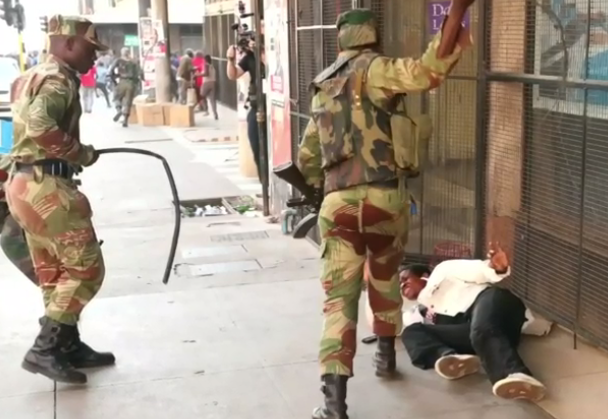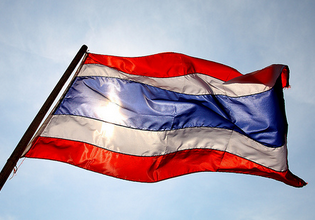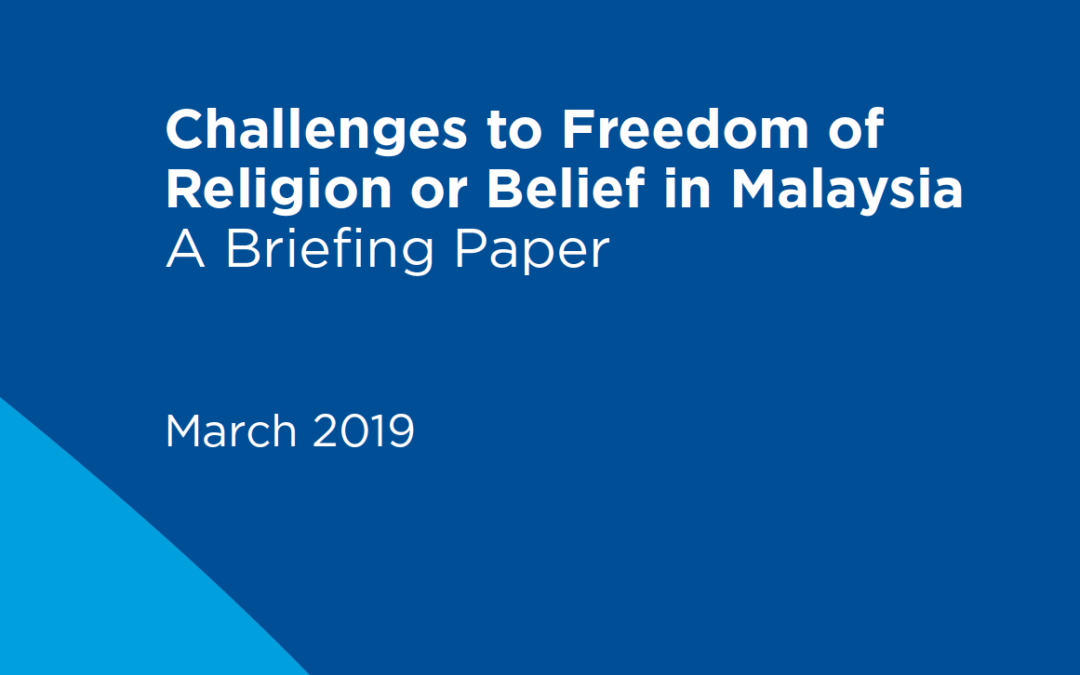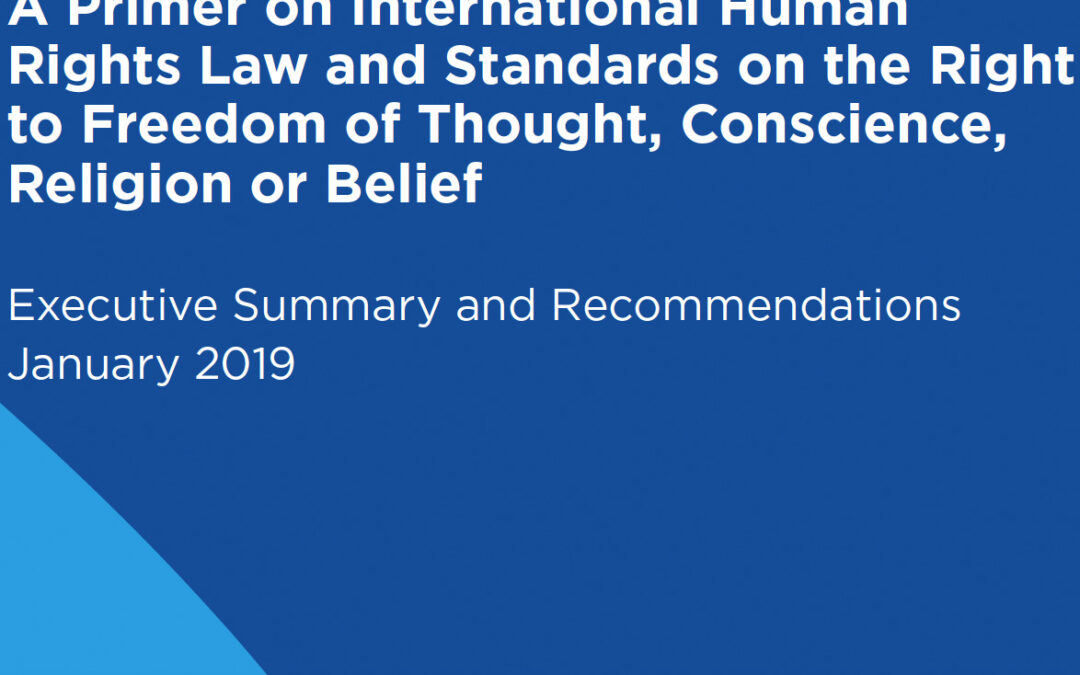
Mar 15, 2019
Today the ICJ issued a Legal Brief note in order to help in understanding the offence of Subverting a Constitutional Government under Zimbabwe law.
Following protests that occurred in most major cities and towns in Zimbabwe in January 2019, a number of activists, human rights defenders, civil society leaders and opposition leaders have been arrested and charged with ‘subverting constitutional government’ as provided for under section 22 of the Criminal Law (Codification and Reform) Act [Chapter 9:23] (hereinafter referred to as the Criminal Code).
This legal briefing note seeks to provide an explanation of the elements of the crime and how it has been construed by Zimbabwean courts, and whether and to what the resort to section 22 has accorded with international law and standards, including African regional standards.
Under Zimbabwe’s existing laws, a person may be charged with an offence known as ‘subverting constitutional government’.
This is a crime akin to but less serious than treason. It is nonetheless an offence which attracts a sentence of up to 20 years in prison.
Various protesters have been arrested on the allegations that their public statements amounted to inciting the commission of this crime.
Following the January 2019 protests, more than 5 protesters and MDC opposition members have been charged with this crime.
Despite the high number of arrests based on this charge in the past few years, there have been no convictions.
Where the basis of the charge are public statements made, the question of what exceeds legitimate exercise of the right to freedom of expression arises.
As such, there is need to interrogate where the line is drawn between legitimate and illegitimate exercise of the right to freedom of expression.
International human rights law, pursuant both universal and African regional standards, protects for the rights of persons to freedom of opinion and expression (Article 9 ACHPR; article 19 ICCPR), freedom of assembly (article 11 ACHPR;21 ICCPR) article, freedom of association (article 10 ACHPR; article 22 ICCPR), and the right to political participation (article 25 ICCPR).
These provisions in these international instruments impose an obligation on all state parties to respect the rights of persons under their jurisdiction.
Zimbabwe as a member state is bound by these provisions and similar provision under sections 58 (freedom of assembly and association), section 59 (freedom to demonstrate and petition), section 60 (freedom of conscience) and section 61 (freedom of expression).
These rights and fundamental freedoms, when exercised by human rights defenders, have been accorded heightened protection in international standards in particular through the UN Declaration on the Right and Responsibility of Individuals, Groups and Organs of Society to Promote and Protect Universally Recognized Human Rights and Fundamental Freedoms (Declaration on Human Rights Defenders), adopted in 1999 by consensus of the General Assembly
While these freedoms are not absolute, under international law, any restrictions must be (i) legitimate, provided by law which is clear and accessible to everyone and formulated with sufficient precision to enable an individual to regulate his or her conduct; (ii) proven strictly necessary to protect the rights or reputation of others, national security or public order, public health or morals and (iii) proven to be the least restrictive and proportionate means to achieve the purported aim.
Contact
Elizabeth Mangenje, e: elizabeth.mangenje@icj.org
Brian Penduka, e: brian.penduka@icj.org
Arnold Tsunga, e: arnold.tsunga@icj.org
Zimbabwe-Subverting Constitutional Gvt-Advocacy-Analysis Brief-2019-ENG (full legal brief in PDF)

Mar 15, 2019
Today, ICJ and Human Rights Lawyers’ Association (HRLA) submitted recommendations to the Ministry of Justice on Thailand’s draft National Action Plan on Business and Human Rights (‘draft NAP’), dated 14 February 2019, scheduled for public consultation between 15 February 2019 and 15 March 2019.
The organizations called for modifications to the draft NAP to ensure adequate legal and other protections for human rights defenders and their work, which was indicated as the identified as one of the NAP’s key priority areas.
The ICJ and HRLA welcomed the overall commitment expressed by the Thai Government, including the Ministry of Justice’s, to implement the United Nations Guiding Principles on Business and Human Rights (UNGPs) through the NAP.
The organizations expressed concern, however, at the removal of a commitment that had been included in earlier versions of the NAP to “push for an Anti- Strategic Litigation against Public Participation (SLAPP) law” from the current draft NAP.
This removal was justified in the draft NAP on the grounds that the Court of Justice had already introduced legal amendments to prevent SLAPP lawsuits, in particular by enacting revisions of the Criminal Procedure Code (Articles 161/1 and 165/2). The draft NAP also refers to certain powers of a public prosecutor as another means of preventing SLAPP lawsuits.
ICJ and HRLA indicated that these laws were inadequate to prevent judicial harassment of human rights defenders and called for the draft NAP to include concrete action with the force of law to protect individuals, and in particular human rights defenders, from judicial harassment, including through SLAPP lawsuits.
Background
Thailand is among the first countries in the ASEAN region to have begun the elaboration of a NAP. The UN Human Rights Council has stressed the importance of the development of National Action Plans by States to implement the UN Guiding Principles on Business and Human Rights, which include the obligation to provide protections for persons from any adverse human rights impact of business activity.
On 15 February 2019, the Ministry of Justice circulated a final draft of the NAP for public consultation.
Upon finalization of the draft following the consultation, the draft will be forwarded to the Office of the National Economics and Social Development Council for their consideration before being sent to the Cabinet for approval.
The draft NAP sets out 4 key priority areas including (1) labour; (2) land, environment and natural resources; (3) human rights defenders; and (4) cross border investment and multi-national enterprises.
The draft NAP has set out several action points aimed to address concerns regarding the above-noted key priority areas for the period of 5 years (2019-2023).
Thailand-SLAPP Analysis-Advocacy-Analysis brief-2019-ENG (analysis in English, PDF)
Thailand-SLAPP Analysis-Advocacy-Analysis brief-2019-THA (analysis in Thai, PDF)

Mar 11, 2019
A new ICJ report examines the right to freedom of religion or belief in Malaysia, analyzing the country’s legal framework to identify protections of and limitations on the exercise of this right in law and in practice.
The report highlights that jurisdictional disputes affecting the adjudication of matters relating to religion and belief – between civil courts which apply federal and state laws, and Syariah courts, which apply Islamic laws – have emerged as the main arena of contestation.
These disputes have arisen amidst a national legal framework where there remains a lack of clarity in existing jurisprudence and law about the dual jurisdictional regime and insufficient legal safeguards exist to protect the rights of individuals with respect to personal and family matters concerning religion and belief.
Protective mechanisms for persons who wish to change or adopt a new religion also remain inadequate in law, while laws have been misused in practice to curtail the right to religion and belief of religious minorities.
The report explains the general international legal framework governing the right to freedom of religion or belief, before highlighting several concerns relating to the protection and promotion of this right in Malaysia. These include:
- Discrimination against religious minorities;
- Limitations on the rights of children relating to personal matters governed by Islamic Law;
- Discrimination against persons who wish to change or adopt a new religion;
- Criminalization and prosecution of proselytism among Muslims;
- Prohibitions on the use of the word ‘Allah’ by non-Muslims;
- Criminalization of free expression through the crime of sedition.
These concerns are detailed in the report. In light of these challenges, the report offers a number of recommendations to the Government of Malaysia to assist authorities in ensuring Malaysia’s legal framework is implemented in accordance with international human rights law and fully protects the right to freedom of religion or belief.
The report situates its legal analysis within Malaysia’s socio-political context, where religion and ethnicity play significant roles in politics and society, and concerns are emerging of rising intolerance against religious and ethnic minorities.
This report is part of a series of ICJ publications on the right to freedom of religion or belief, produced with the support of the International Panel of Parliamentarians for Freedom of Religion and Belief (IPPFoRB).
Contact
Frederick Rawski, ICJ Asia-Pacific Regional Director, frederick.rawski@icj.org
See also
New primer on freedom of religion or belief in international human rights law
New briefing paper: challenges to freedom of religion or belief in Nepal
Download
Malaysia-Freedom of religion Exec sum-Advocacy-Analysis brief-2019-ENG (executive summary, in PDF)
Malaysia-Freedom of religion brief-Advocacy-Analysis brief-2019-ENG (full report, in PDF)

Feb 15, 2019
The ICJ has published an overview of international standards on judges’ and prosecutors’ freedoms of expression, association and assembly, in a submission to the UN Special Rapporteur on the Independence of Judges and Lawyers.The document responds to the Special Rapporteur’s call for input for an upcoming report to the UN Human Rights Council in Geneva.
The submission outlines the relevant international standards and key regional jurisprudence and standards, as well as illustrative national cases and practice and several academic sources.
The ICJ concludes, among other things, that:
- Judges and prosecutors are like other citizens entitled to freedom of expression, belief, association and assembly, subject only to necessary and proportionate restrictions for valid purposes.
- In principle any such restrictions that are specifically related to their judicial functions, should be established by the judiciary itself or another independent body with majority membership of judges.
- Any proceedings against a judge or prosecutor related to their exercise of these freedoms should comply fully with international human rights law and standards in terms of the grounds and procedures, including as set out in standards on independence of the judiciary and prosecutors.
- Judges and prosecutors should be required to recuse themselves from any case where they have previously exercised these freedoms in a way that would give rise to a reasonable apprehension of bias in their subsequent conduct of the case.
- At the same time, the above considerations do not mean that a judge or prosecutor can never engage in expression, association or assemblies that touch on issues or parties that could speculatively come before the courts at some future point. Total isolation from the community and society is neither realistic nor desirable.
- In general, involvement in or comment on matters of party politics carry particularly high risks of giving rise to perceptions of lack of independence and there is relatively wide scope to enact restrictions on this ground.
- It is particularly important that judges (and prosecutors) can exercise their freedoms of expression, association and assembly in order to address: threats to the independence of the judiciary; threats to judicial integrity; fundamental aspects of the administration of justice; or to otherwise promote and protect universally recognized human rights and fundamental freedoms and the rule of law. As such, there is very limited scope for any authority to restrict exercise of these freedoms for these purposes.
- The relevant standards and principles apply to online forms of expression and association (including social media) in an equal or analogous manner to their application to offline forms. However, judges and prosecutors should be aware of and take into account practical aspects of online forms of expression and association.
The full submission can be downloaded in PDF format here: Universal-SRIJL Judges-Advocacy-non legal submission-2019-ENG

Jan 25, 2019
The ICJ has issued “A primer on international human rights law and standards on the right to freedom of thought, conscience, religion or belief” in which the organization outlines and analyses international human rights law and standards relevant to the right to freedom of religion or belief.
The primer is part of a series of ICJ publications on this theme.
The right to freedom of thought, conscience, religion or belief is a wide-ranging right encompassing a large number of distinct, and yet interrelated entitlements.
International human rights law provides for and guarantees the right to freedom of thought, conscience, religion or belief broadly, encompassing the right to freedom of thought and personal convictions in all matters, and protecting the profession and practice of different kinds of beliefs, whether theistic, non-theistic or atheistic, and the freedom not to disclose one’s religion or belief.
International law also guarantees and protects the right not to have a religious confession.
Among other things, the Primer describes in detail certain key aspects of the right to freedom of religion or belief, including the freedom to adopt, change or renounce a religion or belief; the right to manifest a religion or belief; as well as the relationship between the right to freedom of religion or belief and other human rights, including the principle of non-discrimination, and the right to freedom of expression.
Finally, the primer concludes with a number of recommendations addressed to States in light of its analysis of international human rights law and standards on the right to freedom of religion or belief.
Download
To download the Executive Summary in English, click here.
To download the full primer in English, click here.
To download the full primer in Burmese, click here.









